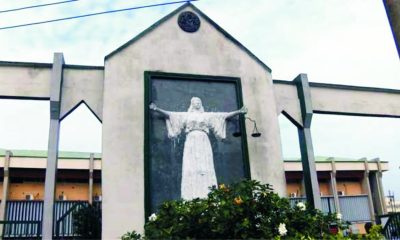Business
‘Kaduna Targets 70 % Budget Implementation’
The Kaduna State
Commissioner for Budget and Planning, Muhammed Abdullahi, says the government is targeting 70 per cent implementation of its 2016 budget.
Abdullahi told newsmen in Kaduna yesterday that the achievement would be historic, as the state had never achieved up to 50 per cent budget implementation in the past ten years.
He said that it would be impossible to achieve the earlier target of 95 per cent in the implementation of the budget due to short fall in projected revenue during the year.
“Notwithstanding, in spite of the revenue shortfall, we are hoping that by the end of 2016, we can achieve implementation rate of 60 to 70 per cent.
“The state government is empowering the private sector with N108 billion worth of contracts, representing 62 per cent of the N172 billion provision in the 2016 budget as capital expenditure.
“A lot is happening in the state in terms of projects execution. We have currently about 70 adverts for tender and each would create about 100 jobs.
“For example, in the department of rural development, there is an advert that would be closing on Thursday for the award of contracts for construction of 16 rural roads and over 100 boreholes in rural communities.
“The contracts would be awarded in the next two weeks.
‘’Similarly, we are about to award a contract for the construction of 255 primary health care hospitals across the state and we just closed a tender for 150 Sustainable Development Goals (SDGs) projects, “he said.
The commissioner disclosed that the government had began preparations for the 2017 budget which would be presented to the State Assembly at the end of September.
Abdullahi said that the target was for the legislature to pass the budget early, so that its implementation would commence from January 1.
He explained that it would be a multi-year budget, which would run from 2017 to 2019.
“’We have received budget proposals from Ministries Department and Agencies (MDAs) and we have held revenue defence about three weeks ago on the budget.
“What this means is, we already have a revenue budget for the proposed budget.
“All revenue generating agencies in the state have defended what they proposed as revenues.
“For example, we already have a figure of what we think we will make as internally generated revenue for 2017.
“What we are working on now is the federal components in terms of estimated allocation, and to see whether or not we will be taking debt for 2017.
“Once the two are completed we will have finished revenue budget.”
On the expenditure aspect, the commissioner said his ministry was analysing the budget proposals of most of the MDAs.
government would also consult with the private sector and other stakeholders, to get their inputs into the budget.
“We are inviting key businessmen all across the state to tell us what they will like to see in the budget; what items in the budget they think would improve their businesses.
“This is because government exists to ensure that the state works and provide jobs, and we can only provide jobs when the privates sector is gainfully engaged.
“For the people of the state, we are holding a budget town hall meeting, specifically to consult with the people particularly in rural areas on what priorities they will like to see captured in the budget.
“When all that is done, we are hoping that when we summit the budget in September, by January 1, we will have the new budget in operation, “he said.
Business
NPA Assures On Staff Welfare
Business
ANLCA Chieftain Emerges FELCBA’s VP
Business
NSC, Police Boost Partnership On Port Enforcement
-

 News2 days ago
News2 days agoTinubu Rejects NDLEA Bill Over Crime Proceeds Clause
-

 Niger Delta1 day ago
Niger Delta1 day agoRSNC Head Charges NAOMEW On Professionalism, Effective Service Delivery
-
Sports2 days ago
Lagos Holds African Fencing Champs
-

 News1 day ago
News1 day agoRivers High Court Judges Begin 2025 Vacation, July 21
-
Rivers2 days ago
Rivers Pledges Support For Enhanced Maritime Security
-
Business1 day ago
NPA Assures On Staff Welfare
-

 News2 days ago
News2 days agoReps Probe Police Over Alleged ?6bn Contract Splitting, Asset Sales
-
Sports2 days ago
Give Rest Of ‘94 Eagles Their Houses – Amuneke

